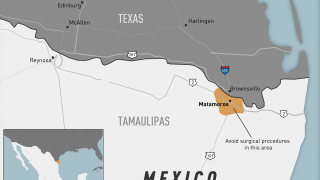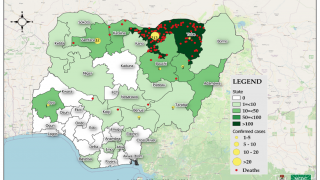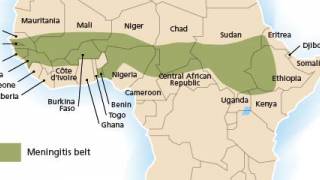Children Between the Ages of 1 and 9 Are Closer to Having an FDA Approved MenB Vaccine

A Meningococcal Group B Vaccine named Trumenba has received the first and only Breakthrough Therapy designation from the U.S. Food and Drug Administration (FDA) for active immunization to prevent invasive disease caused by Neisseria meningitidis group B (MenB) in children ages 1 through 9 years.
Vaccination is the most effective way to protect against this aggressive disease that has a narrow timeframe for diagnosis and treatment, says the Centers for Disease Control and Prevention (CDC).
** Schedule Vaccine Appointments Here **
Trumenba was the first MenB vaccine approved in the U.S. in 2014 for people over 10 years of age.
The other FDA approved serogroup B meningococcal vaccine for this age group is Bexsero.
As required to assess the safety and effectiveness of Trumenba in children age 1 to 9 years of age, Pfizer successfully completed Phase 2 studies in this investigational age group and these data have been submitted to the FDA.
These data support Pfizer’s request for Breakthrough Therapy designation.
Currently, TRUMENBA can be administered as a two‐ or three‐dose schedule to adolescents and young adults 10 through 25 years of age depending on an individual’s risk of exposure and susceptibility to MenB.
There is an active clinical study to confirm the effectiveness of the two-dose vaccination schedule.
Meningococcal disease is a serious illness caused by a type of bacteria called Neisseria meningitidis. It can lead to meningitis (infection of the lining of the brain and spinal cord) and infections of the blood, says the CDC.
Even when it is treated, meningococcal disease kills 10 to 15 infected people out of 100. And of those who survive, about 10 to 20 out of every 100 will suffer disabilities such as hearing loss, brain damage, kidney damage, amputations, nervous system problems, or severe scars from skin grafts.
The majority of invasive meningococcal disease cases worldwide can be attributed to six Neisseria meningitidis serogroups (A, B, C, W, X, and Y).
Together, serogroups A, B, C, W, and Y account for 90% of all invasive meningococcal disease (IMD)1, with MenB accounting for the majority of disease in adolescents and young adults in the U.S. and Europe.
As of 2016, the burden of MenB is highest in adolescents/young adults (32%).
IMPORTANT SAFETY INFORMATION:
- TRUMENBA should not be given to anyone with a history of a severe allergic reaction after a previous dose of TRUMENBA. Some individuals with weakened immune systems may have a reduced immune response.
- As with any vaccine, vaccination with TRUMENBA may not protect all vaccine recipients against N meningitidis group B infections.
- The most common adverse reactions in adolescents and young adults were a pain at injection site, fatigue, headache, and muscle pain. Nausea was reported in adolescents in early phase studies.
- Data are not available on the safety and effectiveness of using TRUMENBA and other meningococcal group B vaccines interchangeably to complete the vaccination series.
Tell your healthcare provider if you are pregnant, or plan to become pregnant.
Only a healthcare provider can decide if TRUMENBA is right for you or your child.
You are encouraged to report negative side effects of vaccines to the U.S. Food and Drug Administration (FDA) and the Centers for Disease Control and Prevention (CDC).
Our Trust Standards: Medical Advisory Committee

























